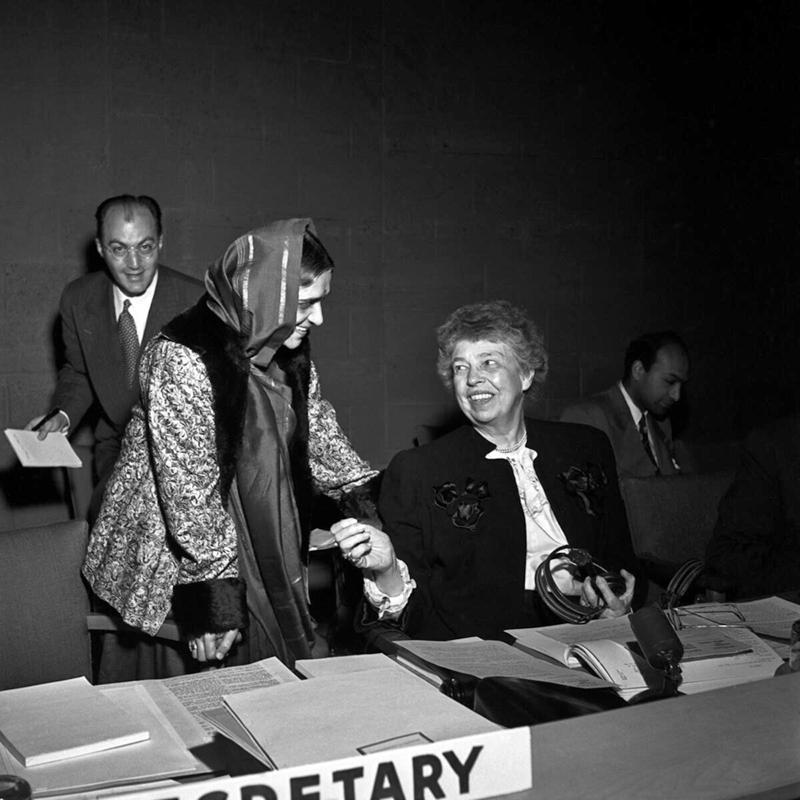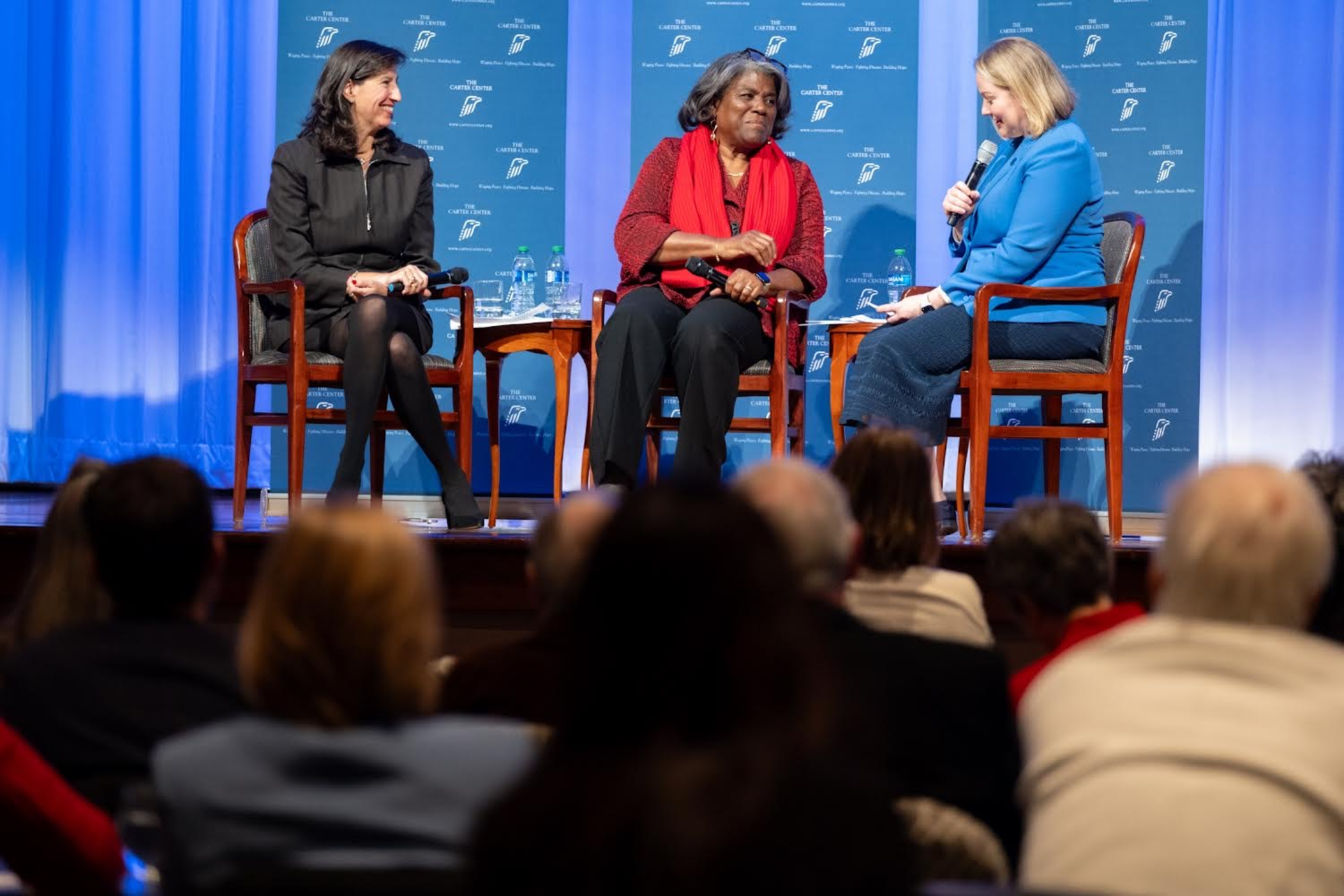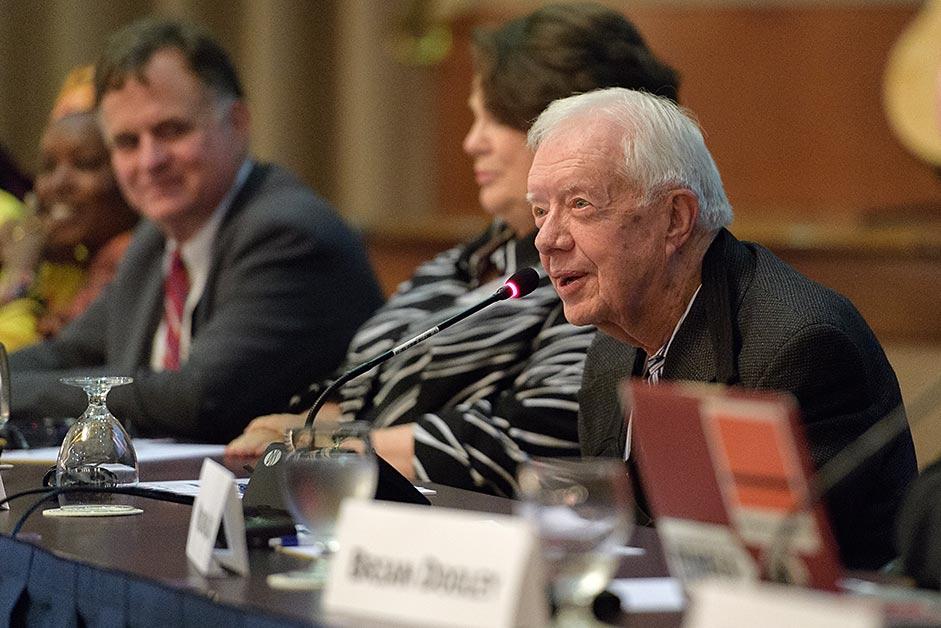
Caption
Women delegates from various countries played a key role in getting women’s rights included in the Declaration. Hansa Mehta of India (standing above Eleanor Roosevelt) is widely credited with changing the phrase "All men are born free and equal" to "All human beings are born free and equal" in Article 1 of the Universal Declaration of Human Rights.
Credit: UN photo



